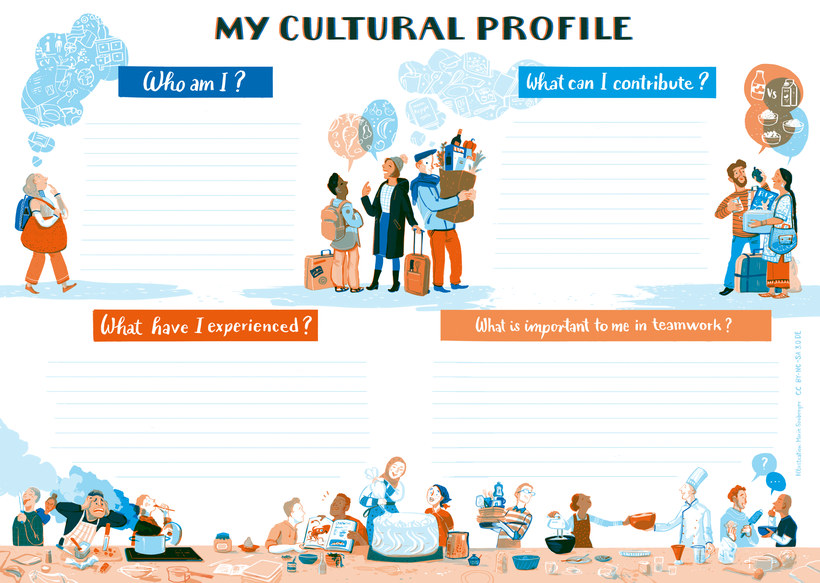We have already reflected upon ourselves as cultural people. In previous units, for example, we considered our socialisation processes as well as the collectives to which we belong. Subsequently, we examined the typical behavioural patterns that are likely to follow, using cultural dimensions as a framework. In this session we will continue thinking about ourselves and our identity by starting to develop a cultural identity profile. Following Lane et al (2019) we will refer to this exercise as 'mapping'. This way of viewing the process seems appropriate since maps have different levels of detail and are developed for a variety of purposes. The purpose we are aiming for here is the development of a ‘map’ that might serve as an orientation if you were to join a workshop preparing for work abroad.
Using cultural profiles as a basis for mapping and negotiating culture
Task: My cultural profile
Imagine you have been invited to join a workshop whose goal is to prepare you to work abroad. You are expecting to meet new and disparate people who are all interested in preparing themselves to work outside of their home country. In the invitation you have been asked to develop a cultural profile and bring it along to the workshop to enable others to get toi know you. In order to help with this task, you have received a template with some questions that might guide you, but of course you are free to add any information you think might help seminar participants to get to know you better. Please fill out the four different quadrants of your cultural profile in your learning journal.
Your identity profile has four squares and covers issues such as:
- Who am I?
- What can I contribute?
- What have I experienced?
- What is important to me when working with others?
Illustration: Marie Seeberger (www.behance.net/marieseeberger) CC-BY-NC-SA 3.0 license
Click on the image for a larger view.
Who am I?
The answers should provide other workshop participants with personal information (that you are ready to share), which will help them to get to know you better in a work context.
- What is my educational and professional background?
- How old am I?
- What are the main collectives that I belong to? (e.g. professional, leisure time)
- Which collectives still have a strong influence on me when working with others? (e.g. your university, your family, sports club)
What can I contribute?
This quadrant includes information about experiences and competencies you have and which could be helpful when travelling abroad. Questions which may help you to identify these are the following:
- Which languages do I speak and at what level?
- Which competencies and skills can I contribute? These could include previous experiences abroad, openness, interest in other countries and cultures, readiness to listen or exploring and dealing with the unknown.
What have I experienced?
This quadrant involves evaluating past experiences in intercultural settings.
- What motivates me when meeting others?
- What irritates me when interacting with others?
- What drives me crazy?
- What are my trigger points?
- With which groups of people do I find it easy to establish a relationship?
What is important to me when working with others?
- What are my expectations?
- How would I like others to behave when working with me? When answering this question consider the cultural dimensions you dealt with earlier on, i.e. Independence versus interdependence, task versus relationship, egalitarianism versus status, direct versus indirect, risk versus certainty and monochronicity versus polychroncity?
- How is my self-image related to these dimensions?
